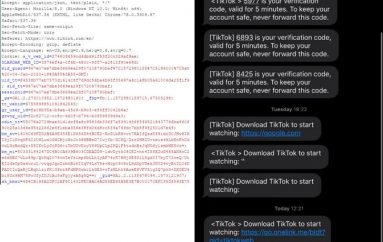
Fileless Ransomware Spreads via EternalBlue Exploit
A newly discovered ransomware family was found to be using the NSA-linked EternalBlue exploit for distribution and is capable of fileless infection, researchers have discovered.
Dubbed UIWIX, the malware was initially spotted on Monday, when the WannaCry outbreak was in the spotlight. The threat spreads by exploiting the same vulnerability in Windows SMBv1 and SMBv2 that WannaCry does.
Unlike WannaCry, UIWIX is executed in memory after exploiting EternalBlue, with no files or components being written to disk. This “greatly reduces its footprint and in turn makes detection trickier,” Trend Micro explains.
Furthermore, the security researchers say this ransomware family is also stealthier, containing code that allows it to terminate itself if a virtual machine (VM) or sandbox is detected. UIWIX also contains code that gathers the infected system’s browser login, File Transfer Protocol (FTP), email, and messenger credentials.
Unlike WannaCry, UIWIX doesn’t use autostart and persistence mechanisms, is distributed in the form of a Dynamic-link Library (DLL). Interestingly, the malware terminates itself if the compromised computer is located in Russia, Kazakhstan, and Belarus, and uses mini-tor.dll to connect to an .onion site.
UIWIX doesn’t have the worm spreading capabilities either, doesn’t include a kill-switch, and uses a different Bitcoin address for each victim it infects. When accessed, a URL in the ransom note ask for a “personal code” that is included in the ransom note and prompts the user to sign up for a Bitcoin wallet if they don’t have one.
“It’s not a surprise that WannaCry’s massive impact turned the attention of other cybercriminals into using the same attack surface vulnerable systems and networks are exposed to,” Trend Micro notes.
Before WannaCry and UIWIX, however, the EternalBlue exploit was leveraged by the Adylkuzz botnet, which abuses infected systems to mine for the cryptocurrency Monero.
Already ported to Metasploit, EternalBlue is one of the exploits released by the hacker group known as The Shadow Brokers after allegedly stealing it from the National Security Agengy-linked Equation Group. Microsoft patched the targeted vulnerability before the exploit’s public release, and also issued an emergency patch for older platform versions.
“UIWIX, like many other threats that exploit security gaps, is a lesson on the real-life significance of patching. Enterprises must balance how it sustains the efficiency of [their] business operations while also safeguarding them. IT/system administrators and information security professionals, their sentry, should enforce strong baselines that can mitigate attacks that threaten the integrity and security of their systems and networks,” Trend Micro concludes.
Source | securityweek





